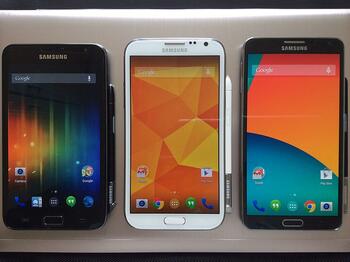
Back when integrated circuits were safely ensconced in missiles, spacecraft and machine tools, information technology could take us to the moon or build better cars, but – as long as they didn’t blow us up – they didn’t seem destined to strip away the last of our humanity. But as information technology has emerged as a factor in everyday life, the threat to our autonomy and privacy as individuals has mounted.
This comes at a time when many, particularly the young, worship technology as a new kind of secular god. In a poll of British people, about as many said they trust Google to have their interests at heart as they do God. Apple, in particular, notes Brett Robinson, writer of “Appletopia,” has adherents who back their products with “fanatical fervor.”
Yet while information technology may bring many blessings, it also threatens our basic freedoms. Such concerns have existed for years, particularly in science-fiction novels like Yevgeny Zamyatin’s 1924 classic, “We,” which described a society where technology served to curb personal privacy and autonomy. Four decades ago, computer industry pioneer Willis Ware warned that the new communication technology, rather than simply making information more universally available, could also increase the “intensive and personal surveillance” of individuals.
Read the entire piece at The Orange County Register.
Joel Kotkin is executive editor of NewGeography.com and Roger Hobbs Distinguished Fellow in Urban Studies at Chapman University, and a member of the editorial board of the Orange County Register. He is also executive director of the Houston-based Center for Opportunity Urbanism. His newest book, The New Class Conflict is now available at Amazon and Telos Press. He is also author of The City: A Global History and The Next Hundred Million: America in 2050. He lives in Los Angeles, CA.
Photo by Android Open Source project [Apache License 2.0, GPL or CC BY 2.5], via Wikimedia Commons












